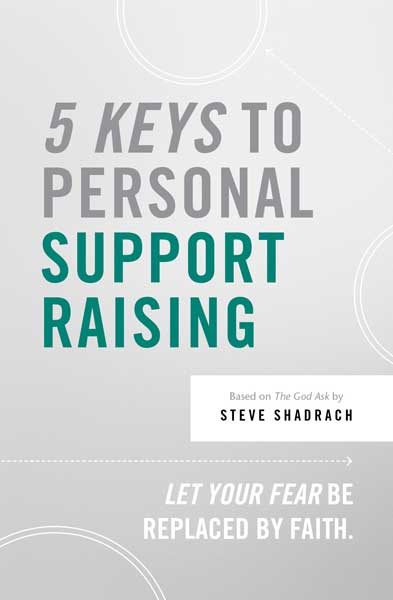The leaders of Campus Challenge* were so anxious to get their new staff to their ministry assignments that they held an emergency meeting on how they could bypass the sometimes long and laborious support raising process. The President (who was on salary) proposed the re-routing of a recent 150K gift to go instead toward subsidizing new staff salaries. The HR director (also on salary) quickly calculated the percentages and yelled excitedly, “We can cover 60% of their first year salary, 30% of the second, and by the third they should all be at full support!” A Regional Director (who’s never even gotten to 75% in her own support efforts) chimed in, “This should be no problem. Along with their ‘on campus’ ministry we can give each staffer up to ten hours per week to work on support. Two or three years of that will be plenty of time to wean them off subsidies and have their own team.”
I’ve seen this same scenario unfold with many organizations—usually followed by regret years later. I once fell into this same trap because we so desperately wanted to expand our ministry and searched for short-cuts to quick “success.” What we later realized was that short-cuts only short-circuit and that we all—regardless of how well intentioned—reap what we sow. Besides the fact I’ve almost never seen a subsidized person ever get to 100% of their own support, here are three reasons why (as we say in the South) “this dog won’t hunt:”
1. It builds an unhealthy dependence
Our motive may be to help, but a subtle, even deadly, side effect to subsidizing staff can be a debilitating reliance upon the organization and it’s ever decreasing “general fund.” Maybe we ought to develop our staff like we do our children: don’t do anything for them they can do for themselves! Why not take the long look, realizing that when someone is hungry giving them a fish each day is not near as empowering as teaching them how to fish (and feed themselves)?
2. It attracts and develops the wrong kind of staff
Instead of raising up solid, independent, world changers who yearned to pioneer and establish ministries in the face of opposition and struggle, we were attracting and raising up weaker staff who were hoping for a handout and making excuses why they weren’t seeing significant ministry results. And what a coincidence that many subsidized personnel felt “led” to leave staff once the subsidies disappeared?
3. It limits (not expands) the size of your staff
It boils down to: do you have a centralized or decentralized philosophy of staff funding? i.e. Does one ministry exec constantly go back to the same major donors attempting to keep the “supply train” pumped up, or do we spread the task around, helping each staffer feel the full weight of raising their support? The ministries that are exploding right now are the ones who truly understand “franchising” and give their regional and local staff maximum ownership and responsibility—including fund raising.
For us, it wasn’t until a gutsy businessman stood up at a board meeting one day and proclaimed, “If new staff can’t go out and, from scratch, raise their entire support, how in the world can we expect them to launch and develop a successful campus ministry? Raising their support is not only essential to their preparation, I believe it ought to be a pre-requisite for even coming on our staff!” Wow. That was the last day we ever paid any subsidies…
*Name was changed to protect the guilty!

